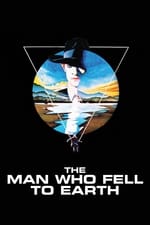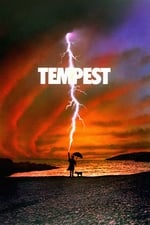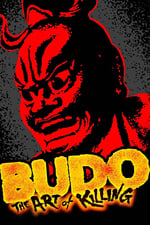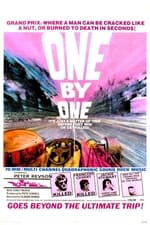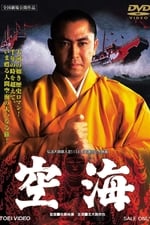Personal Info
Known For Sound
Known Credits 8
Gender Male
Birthday March 15, 1947 (77 years old)
Place of Birth Kyoto, Japan
Also Known As
- Stomu Yamash'Ta
- Stomu Yamash'ta
- Tsutomu Yamashita
- Yamash'ta
Content Score
100
Yes! Looking good!
Login to report an issue
Biography
Stomu Yamashta (or Yamash'ta), born Tsutomu Yamashita (山下勉, Yamashita Tsutomu, 15 March 1947), is a Japanese percussionist, keyboardist and composer. He is best known for pioneering and popularising a fusion of traditional Japanese percussive music with Western progressive rock music in the 1960s and 1970s.
In the latter part of the 1970s, he led the supergroup Go with Steve Winwood, Al Di Meola, Klaus Schulze, and Michael Shrieve.
Yamash'ta was born in Kyoto, Japan on 15 March 1947. He entered to study at the Kyoto Academy of Music in 1960. His father was the director of the Kyoto Philharmonic, and he became a percussionist in the orchestra when he was 13. He studied music at Kyoto University, Juilliard School of Music, and Berklee College of Music, and has also lectured in music. His innovation and acrobatic drumming style earned him many accolades. In the 1960s he performed with Thor Johnson, Toru Takemitsu, and Hans Werner Henze amongst others. He changed his name from Tsutomu Yamashita to the phonetic Stomu Yamash'ta and in 1969 gained worldwide recognition during a concert with Seiji Ozawa and the Chicago Symphony Orchestra. Time reviewed the concert declaring 'the star of the evening was Stomu Yamash'ta who stole the show with his virtuoso performance', and when it was over the audience gave him a five-minute standing ovation.
At the turn of the 1970s he worked with Peter Maxwell Davies and brought the Red Buddha Theatre company from Japan to Europe, acting as their director, producer and composer, writing and performing in the multi-media event The Man From The East, with Morris Pert's Come To The Edge providing the musical backing.
He has composed for the British Royal Ballet; contributed pieces from his albums to the Nicolas Roeg film The Man Who Fell to Earth (starring David Bowie); performed in Peter Maxwell Davies's score for Ken Russell's The Devils and in John Williams' score for Robert Altman's Images (1972). He has also composed film scores. His Space Theme was used by the BBC on The Hitchhiker's Guide to the Galaxy.
Stomu Yamash'ta also appears in the last episode of Tony Palmer's All You Need is Love: The Story of Popular Music.
Originally known as Tsutomu Yamashita, most of his albums for Western audiences use the name "Stomu Yamash'ta", though some (such as Go and Raindog) use the name "Yamashta" (without the apostrophe).
Source: Article "Stomu Yamashta" from Wikipedia in English, licensed under CC-BY-SA 3.0.
Stomu Yamashta (or Yamash'ta), born Tsutomu Yamashita (山下勉, Yamashita Tsutomu, 15 March 1947), is a Japanese percussionist, keyboardist and composer. He is best known for pioneering and popularising a fusion of traditional Japanese percussive music with Western progressive rock music in the 1960s and 1970s.
In the latter part of the 1970s, he led the supergroup Go with Steve Winwood, Al Di Meola, Klaus Schulze, and Michael Shrieve.
Yamash'ta was born in Kyoto, Japan on 15 March 1947. He entered to study at the Kyoto Academy of Music in 1960. His father was the director of the Kyoto Philharmonic, and he became a percussionist in the orchestra when he was 13. He studied music at Kyoto University, Juilliard School of Music, and Berklee College of Music, and has also lectured in music. His innovation and acrobatic drumming style earned him many accolades. In the 1960s he performed with Thor Johnson, Toru Takemitsu, and Hans Werner Henze amongst others. He changed his name from Tsutomu Yamashita to the phonetic Stomu Yamash'ta and in 1969 gained worldwide recognition during a concert with Seiji Ozawa and the Chicago Symphony Orchestra. Time reviewed the concert declaring 'the star of the evening was Stomu Yamash'ta who stole the show with his virtuoso performance', and when it was over the audience gave him a five-minute standing ovation.
At the turn of the 1970s he worked with Peter Maxwell Davies and brought the Red Buddha Theatre company from Japan to Europe, acting as their director, producer and composer, writing and performing in the multi-media event The Man From The East, with Morris Pert's Come To The Edge providing the musical backing.
He has composed for the British Royal Ballet; contributed pieces from his albums to the Nicolas Roeg film The Man Who Fell to Earth (starring David Bowie); performed in Peter Maxwell Davies's score for Ken Russell's The Devils and in John Williams' score for Robert Altman's Images (1972). He has also composed film scores. His Space Theme was used by the BBC on The Hitchhiker's Guide to the Galaxy.
Stomu Yamash'ta also appears in the last episode of Tony Palmer's All You Need is Love: The Story of Popular Music.
Originally known as Tsutomu Yamashita, most of his albums for Western audiences use the name "Stomu Yamash'ta", though some (such as Go and Raindog) use the name "Yamashta" (without the apostrophe).
Source: Article "Stomu Yamashta" from Wikipedia in English, licensed under CC-BY-SA 3.0.
Sound
|
|||
|
|||
|
|||
|
|||
|
|||
|
Acting
|
Crew
|

